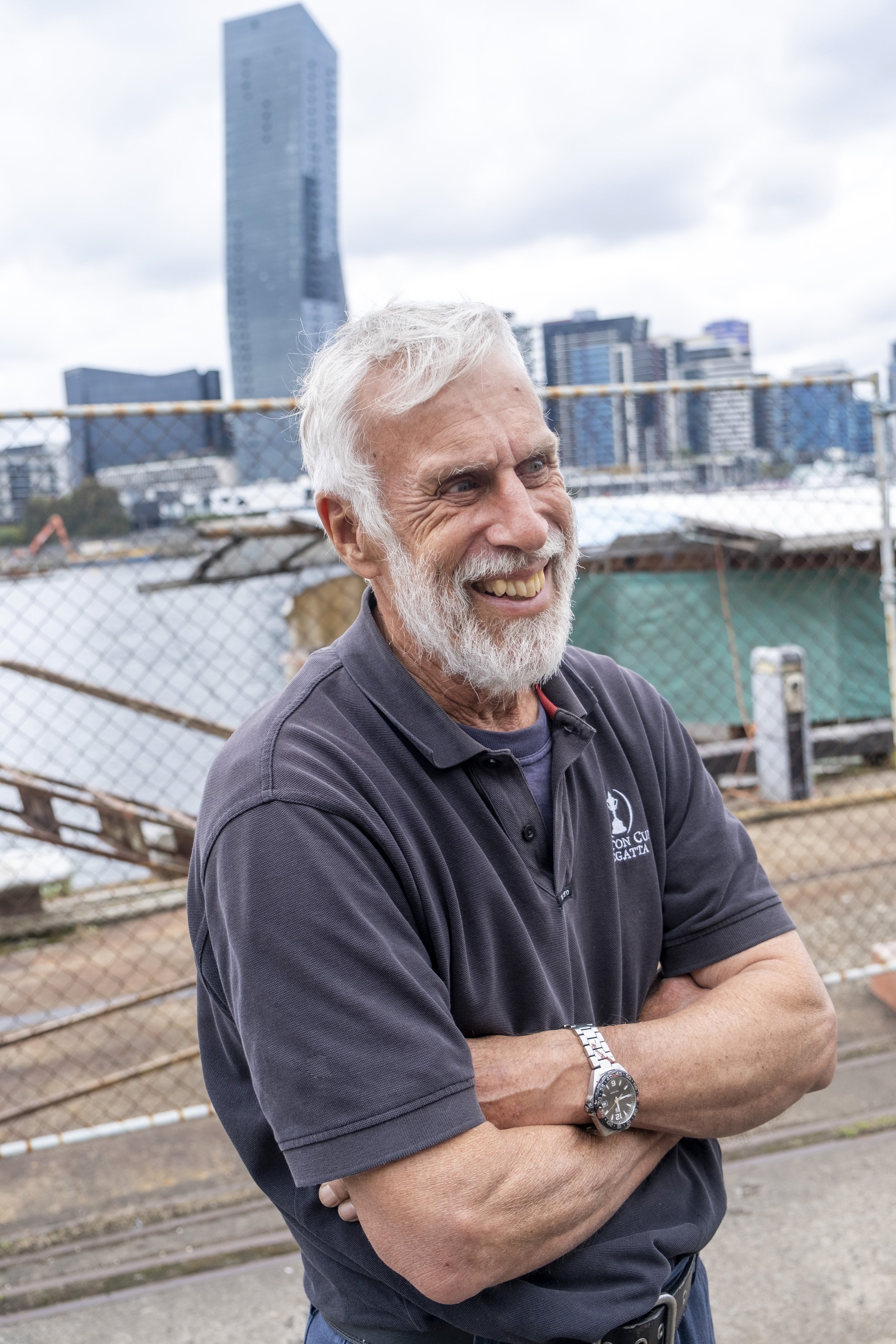“I have always been interested in the sea.”
VOLUNTEER & COMMUNITY LEADER
Peter Harris is a scientist passionate about maritime heritage, especially the restoration of the Alma Doepel, a historic ship. After moving to Melbourne from Edinburgh, he began volunteering with the Alma Doepel in 1984, significantly contributing to its conversion for sail training. After a break for career and family commitments, Harris returned to spearhead the ship’s restoration, establishing it as a community project in Melbourne’s Docklands. His work emphasises the Alma Doepel’s role in youth education and the preservation of maritime history.
Who is Dr Harris?
-
I’ve been with Alma Doepel for 39 years, starting in 1984 after emigrating from Edinburgh to work as an academic at the University of Melbourne’s medical school. I have always been interested in the sea and was looking for a ship to volunteer on when I found the Alma and discovered more about her history.
The Alma Doepel has a long connection with Melbourne and Docklands. During her time as a commercial freighter, she sailed the Yarra transporting timber and jam pulp for Elders IXL, and in the 1970’s returned to Docklands as a training vessel. In fact, the height of the Bolte bridge was adjusted during construction to accommodate her masts, such was the significance she held in the minds of planners at the time. That relationship continued when, in recognition of her historical importance, the Alma Doepel Restoration Project was invited to berth in Docklands by the City of Melbourne and Victorian Government.
-
The Alma has a rich history dating back to her launch in 1903. She set a record in 1917 for the fastest voyage by a cargo sailing vessel between Hobart and Melbourne Heads as part of the ‘Mosquito Fleet’. During the Second World War she was commissioned by the Australian Army to haul supplies and troops to New Guinea, and was a familiar site in Australian ports as a commercial cargo vessel until the late 60’s.
At the time the decision was made to restore the Alma Doepel, she was riddled with shipworm and in danger of sinking within a year. It would’ve been an easy thing to let her go, but a dedicated group, myself included, decided to tackle these challenges head-on, developing a comprehensive plan as part of the community effort to bring the ship back into service.
-
We have an incredibly dedicated group of supporters who host monthly meetings here at Shed 2 along with organising special events throughout the year to help raise awareness and fund the project. We also hold regular open days for visitors. People can come down, board the ship and see how she works, and meet the group that has so passionately committed themselves to the Alma Doepel project over so many years.
-
The project does play a significant role in maritime education and skill development both as a living museum and, through our programs, teaching teamwork, maritime history, and nautical skills.
Beyond the technical, however, our youth trainee programs emphasise and promote positive mental health, resilience, and leadership qualities. Our trainees become ambassadors for the Alma Doepel project, and many tell stories of keeping their ship’s logbook for decades as a reminder of how the voyage changed their lives.
-
Few people realise the rich maritime history of Docklands. I would love to see a working port where that heritage is preserved and passed onto future generations, and from which historic vessels like Alma Doepel can operate.








Alma Doepel
Our mission is to challenge and inspire young people to realise their full personal potential.



